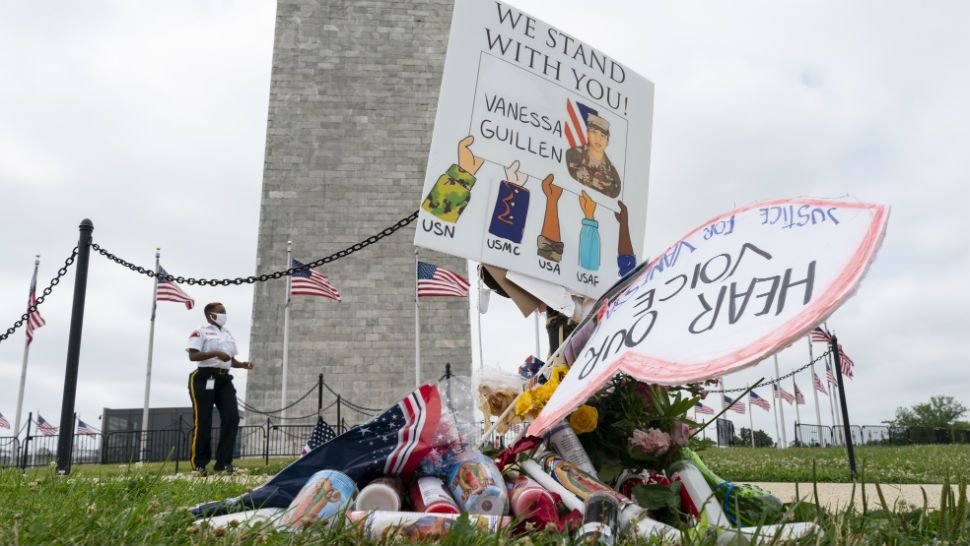AUSTIN, Texas — U.S. Army officials say they will begin an independent review of the command climate at Fort Hood following calls for a more thorough investigation into the killing of a soldier from the Texas base.
Secretary of the Army Ryan D. McCarthy said Friday he will direct the review and that it will be conducted by an independent panel of congressional representatives selected in collaboration with League of United Latin American Citizens.
The panel will examine claims and historical data of discrimination, harassment and assault.
The review comes after the death of 20-year-old Spc. Vanessa Guillen. Investigators say was bludgeoned to death at Fort Hood by fellow a fellow soldier.
She was last seen in April and was listed as missing for six weeks before the Army released details. The soldier suspected in Guillen’s slaying, Spc. Aaron Robinson, died by suicide on July 1 as police were trying to take him into custody.
“The Army is deeply saddened and troubled by the loss of one of our own,” McCarthy said Friday during a press conference.
In a separate press conference Friday, U.S. Rep. Sylvia Garcia, D-Texas, said McCarthy had also agreed to back calls for a Department of Defense to conduct an inspector general’s investigation into the death of Guillen. She said the independent review of Fort Hood’s climate showed military officials were listening.
The Texas congresswoman and others met with McCarthy after dozens of lawmakers joined a letter demanding a full accounting of the circumstances surrounding of Guillen’s death.
“This is the military ‘me too’ movement,” Garcia said.
President Donald Trump acknowledged Guillen’s death in an interview with Noticias Telemundo on Friday. He said he had heard of the sexual harassment and assault allegations in the Army and was expecting a report by Monday, when he said he would say more.
“I thought it was absolutely horrible,” Trump said.
Questions over Guillen’s disappearance still loom.
Guillen’s family has said Robinson, the soldier accused of killing her, sexually harassed Guillen at Fort Hood, but they have not given specifics of what they were told.
Guillen was assigned to work in an armory room at Fort Hood on April 22, when she was last seen walking to a parking lot, according to the Army. On April 23, the U.S. Army Criminal Investigations Division learned of her disappearance and began investigating.
Investigators began interviewing people who had been in contact with Guillen on April 28, according to a timeline provided by the Army. That day, Robinson, of Calumet City, Illinois, was identified as a “person of concern” based on information that he provided investigators during his interview, Army officials said.
The Army was receiving 20 to 30 tips per day about Guillen’s whereabouts, officials said, and it took more than a month to get cell phone records requested for the investigation.
Phone records helped lead investigators to Cecily Aguilar, a civilian now charged with one federal count of conspiracy to tamper with evidence. Investigators believe she helped Robinson hide Guillen’s body. Aguilar, 22, of Killeen, Texas, near Fort Hood, is currently in custody at the Bell County Jail.
The Army said a contractor not involved with the investigation found human remains June 30 in the woods near the Leon River. The remains were later identified as Guillen’s.
Later that day, Robinson, who had been confined at Fort Hood for reasons that were not related to the Guillen investigation, ran away unnoticed from the barracks, according to the Army. After being confronted by police later that night, Robinson died July 1 by taking his own life.
The Army says the gun Robinson used was not issued by Fort Hood, but it’s unclear where he got it.
Army officials said 52 agents from multiple military and civilian law enforcement agencies have conducted more than 300 interviews investigating Guillen’s killing. That has lasted for more than 170 days, and Army officials say that has led to forensic examinations of more than 50 phones.



